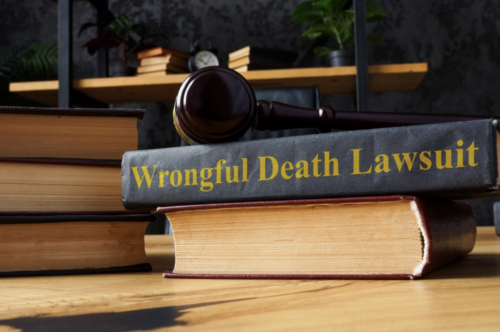
When tragedy strikes in the form of an untimely death, the legal distinctions between wrongful death and survival actions become critically important. At the heart of navigating these complex legal waters is understanding the differences between these two types of claims and knowing which applies to a given situation. This knowledge is not only essential for legal professionals but also for families seeking justice and compensation for their loss.
Keep reading to learn about the intricacies of these legal concepts, shedding light on their distinctions and applications, and how they serve as mechanisms for justice in the aftermath of loss.
What is Wrongful Death?
Wrongful death claims are legal actions that arise when a person dies due to the negligence or misconduct of another party. The underlying principle of wrongful death suits is to provide financial compensation for the heirs and beneficiaries of the deceased. These claims are governed by statute, meaning that the laws outlining who can sue, for what damages, and under what circumstances, vary from state to state. Typically, wrongful death laws aim to cover earnings the deceased would have provided, along with other support and companionship losses.
Who Can File a Wrongful Death Claim?
The eligibility to file a wrongful death claim is strictly defined by state laws. Generally, the immediate family members of the deceased, such as spouses, children, and parents, are the primary eligible parties. In some states, extended family members or even financial dependents may have the right to file a claim. The executor or administrator of the deceased’s estate often formally files the lawsuit on behalf of the eligible family members.
In Utah, the statute of limitations for filing a wrongful death claim is generally two years from the date of the deceased person’s death. This timeframe is crucial, as failing to file within this period can result in the loss of the right to seek compensation. It’s essential for surviving family members or the personal representative to act promptly to preserve their legal rights.
Types of Wrongful Death Damages
Damages in wrongful death cases can be substantial, reflecting the profound impact of the loss of life. These typically include:
- Lost wages and benefits, including what the deceased could reasonably have earned if they had lived
- Medical expenses related to the deceased’s final illness or injury
- Funeral expenses and burial expenses
- Compensation for the pain and suffering experienced by the deceased before death
- Loss of companionship, care, and protection provided by the deceased
- Punitive damages, intended to punish egregious misconduct, may be available in some cases
Wrongful death claims provide a crucial means for families to secure financial stability and a sense of justice following the loss of a loved one. By holding responsible parties accountable, these legal actions also serve a broader societal purpose, deterring negligent and harmful behavior.
What is a Survival Action?
A survival action lawsuit is initiated when an individual sustains injuries due to another party’s negligence and subsequently dies from those injuries at a later date. This claim aims to recover compensation for the medical costs incurred between the time of the accident and the victim’s death. The purpose of a survival claim is to ensure that the accountable party cannot avoid responsibility simply because the victim’s death occurred after the accident.
In Utah, the statute of limitations for filing a survival action claim is typically two years from the date of the decedent’s death. This timeframe is crucial for the decedent’s personal representative to initiate legal action, ensuring that the claim is considered valid and can be pursued in court. It’s important to note that this period can vary based on specific circumstances, so consulting with a personal injury attorney in Utah is essential for guidance and to ensure compliance with all legal deadlines.
Types of Damages Recoverable in Survival Actions
The damages recoverable through a survival action can include:
- Medical bills incurred as a result of the injury before death
- Lost wages the deceased would have earned from the time of injury to death
- Pain and suffering the deceased experienced due to the injury
- Punitive damages, if applicable, to punish the wrongdoer for particularly egregious actions
It’s important to note that while survival actions can provide compensation for the deceased’s estate, they do not cover the emotional pain and loss experienced by the family members, which are the focus of wrongful death claims.
How Survival Actions Differ from Wrongful Death Claims
The key difference between survival actions and wrongful death claims lies in whose losses are being addressed. Survival action lawsuits focus on the damages the deceased suffered between the onset of injury and death, which can include medical expenses, lost wages, and pain and suffering prior to death. In contrast, wrongful death claims focus on the losses suffered by the surviving family members due to the death. Essentially, survival actions compensate for the deceased’s direct experiences, while wrongful death claims address the aftermath for family members.
Can You File a Wrongful Death and Survival Action in Utah?
Utah law allows for the possibility of filing both types of claims under appropriate circumstances.
For instance, if your loved one sustained serious injuries in a car accident caused by a drunk driver and initiated a lawsuit against the driver but then passed away due to those injuries, your family has the option to pursue a wrongful death claim in addition to continuing the original lawsuit as a survival action. This approach ensures that the legal rights of the deceased and their family are fully represented and compensated.
Case Studies
Exploring case studies sheds light on the practical differences between wrongful death and survival actions, illustrating how these legal concepts play out in the courts and impact the families involved. Here, we examine two cases that highlight the distinct pathways and outcomes of these legal actions.
Case Study 1: A High-Profile Wrongful Death Claim
In this case, the family of a well-known individual filed a wrongful death claim after their loved one was tragically killed due to the negligence of another party. The claim focused on the financial support the deceased would have provided to their family, as well as the emotional pain and loss of companionship suffered by the survivors. The lawsuit resulted in a significant settlement for the family, acknowledging not only the economic loss but also the profound emotional impact of their loved one’s untimely death.
Case Study 2: Survival Action Following a Prolonged Illness
Here, an individual suffered severe injuries due to a defective product, leading to a prolonged illness that ultimately resulted in death. The estate filed a survival action, seeking compensation for the medical expenses incurred during the individual’s illness, lost wages, and the pain and suffering endured prior to death. The case was settled in favor of the estate, with the awarded damages reflecting the direct experiences and losses of the deceased from the time of injury to death.
Navigating the Legal Process
The journey through the legal process following the wrongful death or injury leading to a survival action claim can be daunting for grieving families. Understanding the steps involved and the importance of legal representation is crucial for those seeking justice and compensation.
Steps to Take When Considering a Wrongful Death or Survival Action Claim
- Immediate Legal Consultation: Soon after the loss or injury of a loved one, it’s essential to consult with an experienced attorney who specializes in wrongful death and survival actions. This step is critical for understanding your rights and the viability of your case.
- Investigation and Evidence Gathering: Your legal team will conduct a thorough investigation into the circumstances surrounding the death or injury, collecting evidence that supports your claim. This evidence can include medical records, eyewitness testimonies, and expert opinions.
- Filing the Claim: Based on the collected evidence, your attorney will file a wrongful death or survival action claim on your behalf. This legal action initiates the formal legal process against the party or parties responsible for the death or injury.
- Negotiation and Settlement: Many wrongful death and survival action cases are settled out of court. Your attorney will negotiate with the defendant’s insurance company or legal representation to reach a settlement that adequately compensates for your losses.
- Trial: If a settlement cannot be reached, the case may proceed to trial, where a judge or jury will hear the evidence and make a ruling. Although this process can be lengthy, it sometimes results in higher compensation.
Importance of Legal Representation
Navigating the complexities of wrongful death and survival action claims without professional legal guidance can be overwhelming. An experienced law firm in Salt Lake City can provide invaluable support, ensuring that your rights are protected and that you receive the compensation you deserve. They understand the nuances of state laws, can accurately calculate damages, and will advocate on your behalf throughout the legal process.
Contact Utah Wrongful Death Attorneys
If you’re navigating the complexities of a wrongful death case in Utah, you don’t have to do it alone. The experienced legal team at Parker & McConkie understands the profound impact of losing a loved one due to negligence or a wrongful act. With a deep commitment to providing compassionate and effective legal representation, Parker & McConkie can help you understand your rights and explore your legal options. To ensure that surviving family members receive the justice and financial support they deserve, Parker & McConkie offers a free case evaluation. Contact our wrongful death attorneys at Parker & McConkie for a free consultation and take the first step towards securing the advocacy you need in this challenging time.
Contact the Utah Personal Injury Lawyers at Parker & McConkie Today
For more information, please contact an experienced personal injury lawyer at Parker & McConkie to schedule a free initial consultation today. We have 5 convenient locations in Utah, including Midvale, Salt Lake City, Ogden & Provo, UT. Clients can also visit our offices in Idaho Falls, ID & Rock Springs, WY.
We proudly serve Weber County, Utah County, Salt Lake County in Utah, Bonneville County in Idaho, Sweetwater County in Wyoming, and its surrounding areas:
Parker & McConkie Personal Injury Lawyers – Salt Lake City Office
466 S. 500 E., Suite 100,
Salt Lake City, UT 84102
(801) 851-1202
Hours: 24/7
Parker & McConkie Personal Injury Lawyers – Midvale Office
7090 Union Park Ave, #160,
Midvale, UT 84047
(801) 845-0440
Hours: 24/7
Parker & McConkie Personal Injury Lawyers – Ogden Office
2510 S Washington Blvd, Suite 160,
Ogden, UT 84401
(385) 402-8187
Hours: 24/7
Parker & McConkie Personal Injury Lawyers – Provo Office
37 E Center St, Suite 300,
Provo, UT 84606
(801) 876-4107
Hours: 24/7
Parker & McConkie Personal Injury Lawyers – Rock Springs Office
531 N Front St,
Rock Springs, WY 82901
(307) 205-7400
Hours: 24/7
Parker & McConkie Personal Injury Lawyers – Idaho Falls Office
2235 East 25th St. Suite #280,
Idaho Falls, ID 83404
(208) 418-0633
Hours: 24/7



